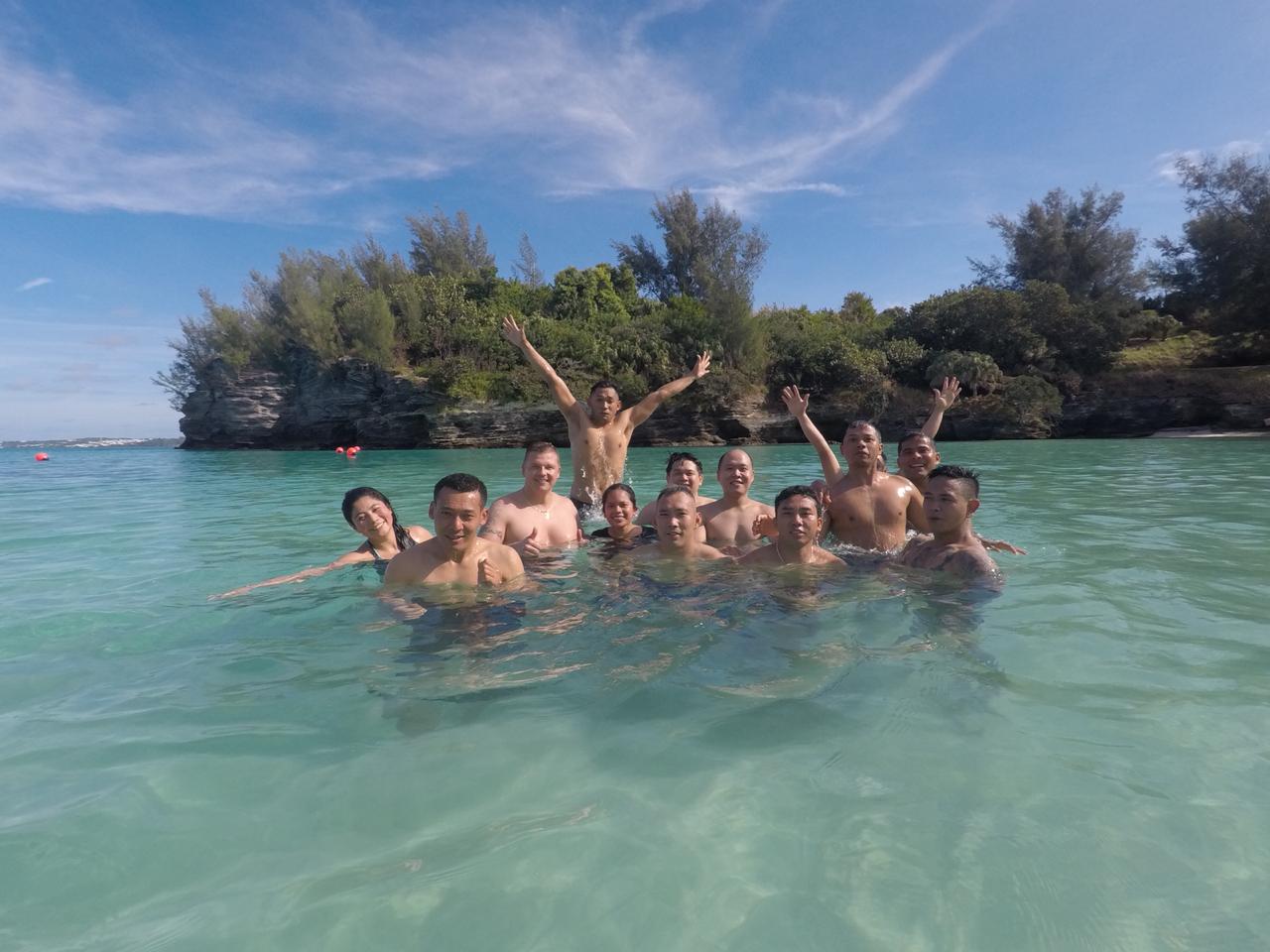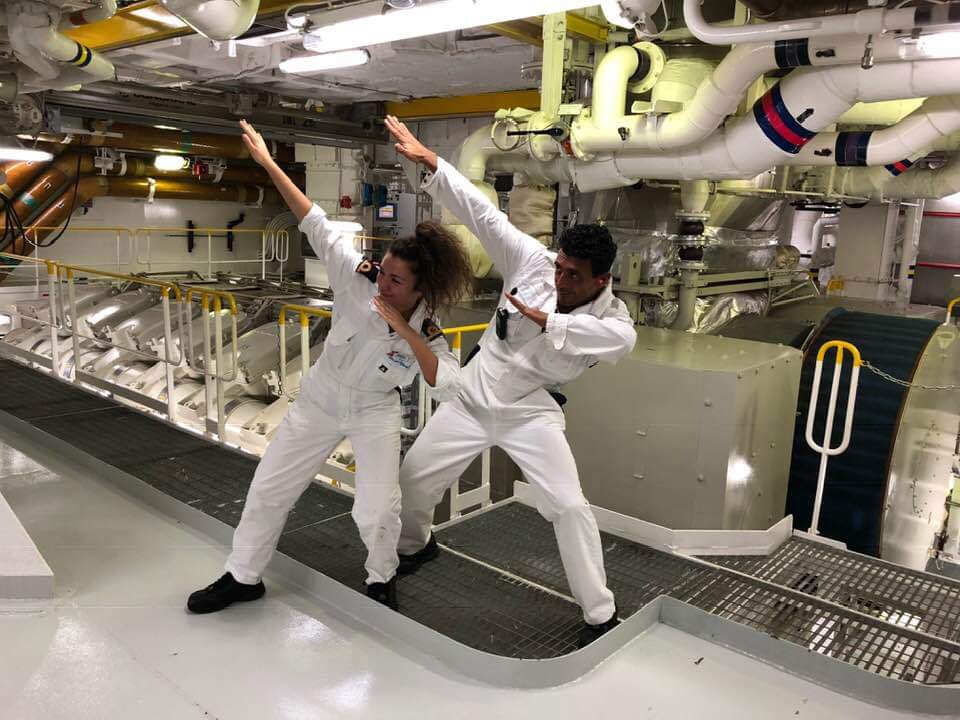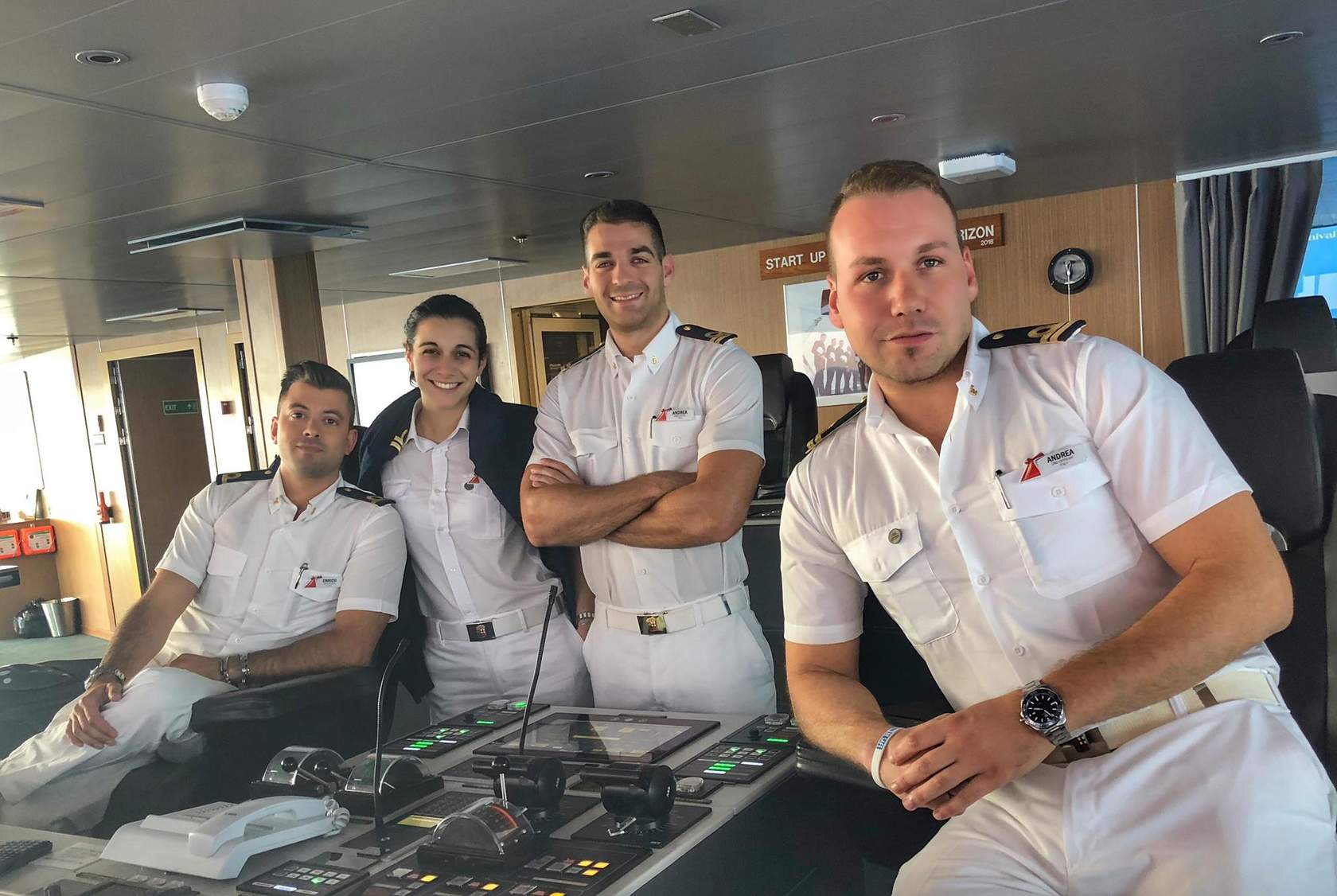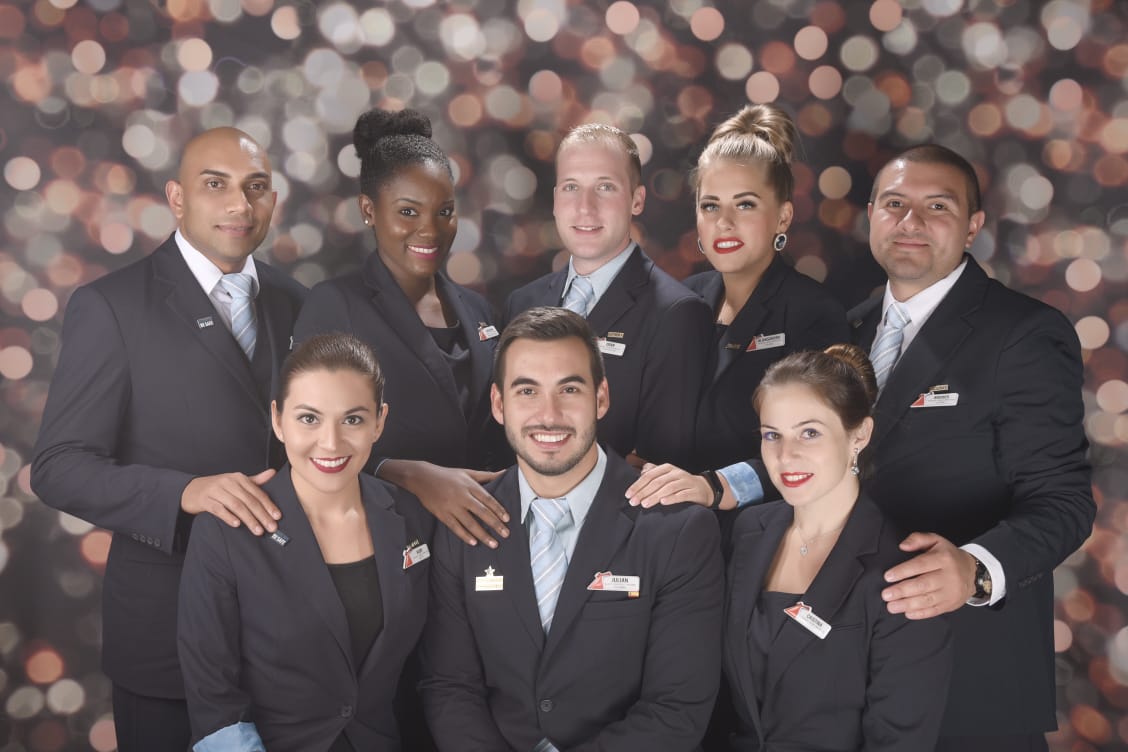Cruise Ship Jobs
Welcome to the Start of Your Adventure!
At Cruise Academy, we’re passionate about connecting exceptional talent with exciting opportunities onboard cruise ships. Whether you’re an emerging professional eager to take your first step or a seasoned expert looking to elevate your journey, we’re here to help you achieve your goals at sea.
Our recruitment process is designed to ensure the best fit for both candidates and employers. Every applicant will undergo a multi-stage interview process, beginning with a one-way video screening. This step allows us to get to know you beyond your CV. Your personality, communication skills, and enthusiasm are just as important as your qualifications. It also gives you the chance to showcase why you’re ready to embrace the adventure of working at sea.
We welcome applications from candidates worldwide who meet the role requirements. Please note that all applicants must be at least 21 years old at the time of submission. For candidates based in the Philippines, India, or Indonesia, successful applicants will be referred to authorized manning agents in their home countries to ensure a smooth onboarding process.
A career at sea is more than just a job - it’s an opportunity to grow, connect with people from all over the globe, and see the world from a unique perspective.
What are you waiting for? Your journey starts here!
At Cruise Academy, we’re passionate about connecting exceptional talent with exciting opportunities onboard cruise ships. Whether you’re an emerging professional eager to take your first step or a seasoned expert looking to elevate your journey, we’re here to help you achieve your goals at sea.
Our recruitment process is designed to ensure the best fit for both candidates and employers. Every applicant will undergo a multi-stage interview process, beginning with a one-way video screening. This step allows us to get to know you beyond your CV. Your personality, communication skills, and enthusiasm are just as important as your qualifications. It also gives you the chance to showcase why you’re ready to embrace the adventure of working at sea.
We welcome applications from candidates worldwide who meet the role requirements. Please note that all applicants must be at least 21 years old at the time of submission. For candidates based in the Philippines, India, or Indonesia, successful applicants will be referred to authorized manning agents in their home countries to ensure a smooth onboarding process.
A career at sea is more than just a job - it’s an opportunity to grow, connect with people from all over the globe, and see the world from a unique perspective.
What are you waiting for? Your journey starts here!
Frequently asked questions
What are the age requirements?
Applicants must be within the age range of 21 to 67 years old to be considered for any of our shipboard vacancies. However, if applying for a deck/engine cadet role, the minimum age requirement is 18 years old.
How long are the contracts?
Cruise lines typically utilize a 'rolling contract' system, which involves automatic renewal of your next contract after successfully completing your current one.
Contract lengths vary from 3 to 10 months, depending on the position you are applying for. Officers and Senior Management typically work for 3 to 6 months consecutively, while other staff and service crew may average 6 to 10 months.
Most positions offer an average of 6 to 8 weeks of holidays (also known as 'shore-leave' or 'vacation'). Additionally, most cruise line employees only receive payment while working onboard the ship.
Contract lengths vary from 3 to 10 months, depending on the position you are applying for. Officers and Senior Management typically work for 3 to 6 months consecutively, while other staff and service crew may average 6 to 10 months.
Most positions offer an average of 6 to 8 weeks of holidays (also known as 'shore-leave' or 'vacation'). Additionally, most cruise line employees only receive payment while working onboard the ship.
Do you accept joint applications?
We welcome applications from couples, siblings, or friends, but each application will be evaluated on its own merits. Please note that we cannot guarantee matching schedules or placement on the same ship if both parties are successful.
How long does the selection process take?
Expect a multi-stage interview process that begins with a preliminary one-way screening interview. This will be followed by at least two video interviews and/or telephone calls.
The duration of the selection process varies, typically taking between four to eight weeks, depending on the position applied for.
The duration of the selection process varies, typically taking between four to eight weeks, depending on the position applied for.
Is there any pre-employment paperwork to complete?
Upon being offered a position, successful candidates will be required to undergo various pre-employment checks and obtain specific documents before joining a ship. These checks and documents may include company-specific requirements as well as compliance with national and international labor laws.
All cruise ship employees are required to obtain medical clearance, regulatory training certificates, and seafarer’s travel documents before beginning work. Additionally, a satisfactory certificate of character (criminal background check) and job-specific paperwork such as academic certificates, licenses, and professional references may be required.
All cruise ship employees are required to obtain medical clearance, regulatory training certificates, and seafarer’s travel documents before beginning work. Additionally, a satisfactory certificate of character (criminal background check) and job-specific paperwork such as academic certificates, licenses, and professional references may be required.
What is regulatory training?
All seafarers are obligated to complete several regulatory safety and security courses, regardless of the position they are applying for. Some companies offer training during the first week of employment onboard, while others require their employees to complete it before joining the vessel. Additionally, some governments require their nationals to undergo this training in their home country.
The first course, known as Basic Safety Training, covers various topics such as First Aid, Fire Fighting & Prevention, Security Awareness, Personal Safety, and Personal Survival. This training can be delivered together over five days, or as individual modules.
Those who assist and guide passengers during emergencies (virtually everybody onboard) must also be trained and certified in Crowd Management, Crisis Management, and Human Behavior.
Please note that if you are required to complete this training before joining a ship, you will be responsible for covering the costs.
The first course, known as Basic Safety Training, covers various topics such as First Aid, Fire Fighting & Prevention, Security Awareness, Personal Safety, and Personal Survival. This training can be delivered together over five days, or as individual modules.
Those who assist and guide passengers during emergencies (virtually everybody onboard) must also be trained and certified in Crowd Management, Crisis Management, and Human Behavior.
Please note that if you are required to complete this training before joining a ship, you will be responsible for covering the costs.
Do I have to do a medical?
The medical certificate is a vital requirement for seafarers as it confirms their physical and medical ability to perform their routine and emergency duties safely and effectively onboard.
This certificate verifies that the seafarer has the physical capacity to complete the necessary basic training, can communicate effectively through hearing and speech, and is not affected by any medical condition, disorder, or medication that could compromise their performance or endanger their colleagues' health and safety.
While most seafarers can obtain their medical certificate at any approved facility, some may need to undergo the examination at a specific location in their home country. The tests can include chest x-rays, blood work, drug and STI screenings, electrocardiograms, and vision and hearing assessments, among others, which can be expensive depending on the role, cruise line, and location.
Some ship owners cover the cost of their employees' medicals, but many do not or may only offer reimbursement for select positions once onboard. If a candidate fails to achieve medical clearance, their job offer will be revoked, and they will not be able to recover the costs incurred. Therefore, it's crucial for applicants to disclose their medical history truthfully at the start of the recruitment process to receive proper guidance.
This certificate verifies that the seafarer has the physical capacity to complete the necessary basic training, can communicate effectively through hearing and speech, and is not affected by any medical condition, disorder, or medication that could compromise their performance or endanger their colleagues' health and safety.
While most seafarers can obtain their medical certificate at any approved facility, some may need to undergo the examination at a specific location in their home country. The tests can include chest x-rays, blood work, drug and STI screenings, electrocardiograms, and vision and hearing assessments, among others, which can be expensive depending on the role, cruise line, and location.
Some ship owners cover the cost of their employees' medicals, but many do not or may only offer reimbursement for select positions once onboard. If a candidate fails to achieve medical clearance, their job offer will be revoked, and they will not be able to recover the costs incurred. Therefore, it's crucial for applicants to disclose their medical history truthfully at the start of the recruitment process to receive proper guidance.
Will I need a visa?
Obtaining a visa is a mandatory requirement for most seafarers before they can start working on a ship. One of the most common visas required is the C1-D visa.
If the ship you are assigned to sails in or through the United States and you are not a citizen of the USA or Canada, you will need a visa to work onboard. Once you have received your medical clearance, we will provide you with an official letter of employment (LOE) that will allow you to schedule a visa appointment at the US Embassy in your home country.
It's worth noting that all ship operators are required to cover the cost of any work-related visas. The cost of a C1-D visa, which is currently $160 USD, will be reimbursed once you have joined your scheduled ship.
However, if you are unable to obtain a visa, your offer of employment will be withdrawn, and you will be responsible for any associated fees.
If the ship you are assigned to sails in or through the United States and you are not a citizen of the USA or Canada, you will need a visa to work onboard. Once you have received your medical clearance, we will provide you with an official letter of employment (LOE) that will allow you to schedule a visa appointment at the US Embassy in your home country.
It's worth noting that all ship operators are required to cover the cost of any work-related visas. The cost of a C1-D visa, which is currently $160 USD, will be reimbursed once you have joined your scheduled ship.
However, if you are unable to obtain a visa, your offer of employment will be withdrawn, and you will be responsible for any associated fees.
















